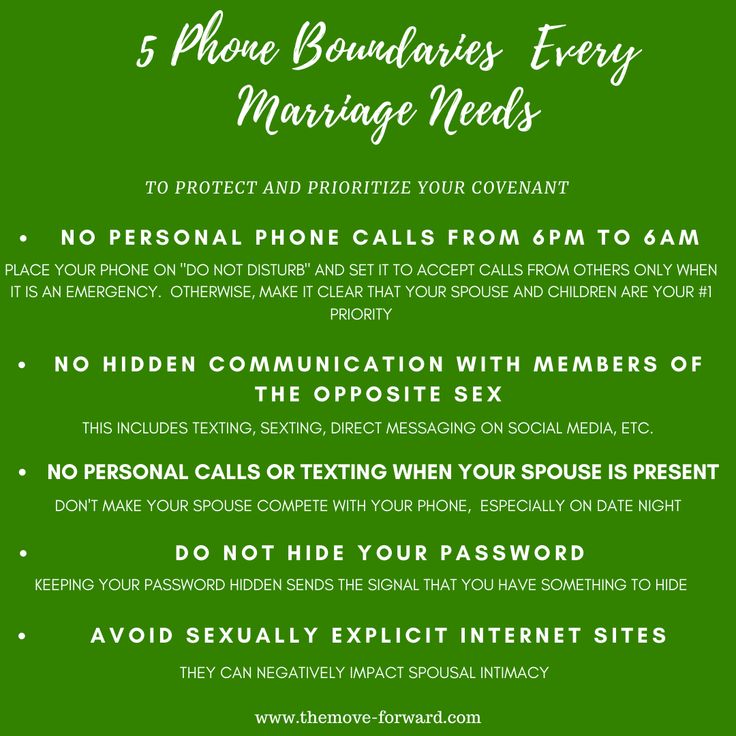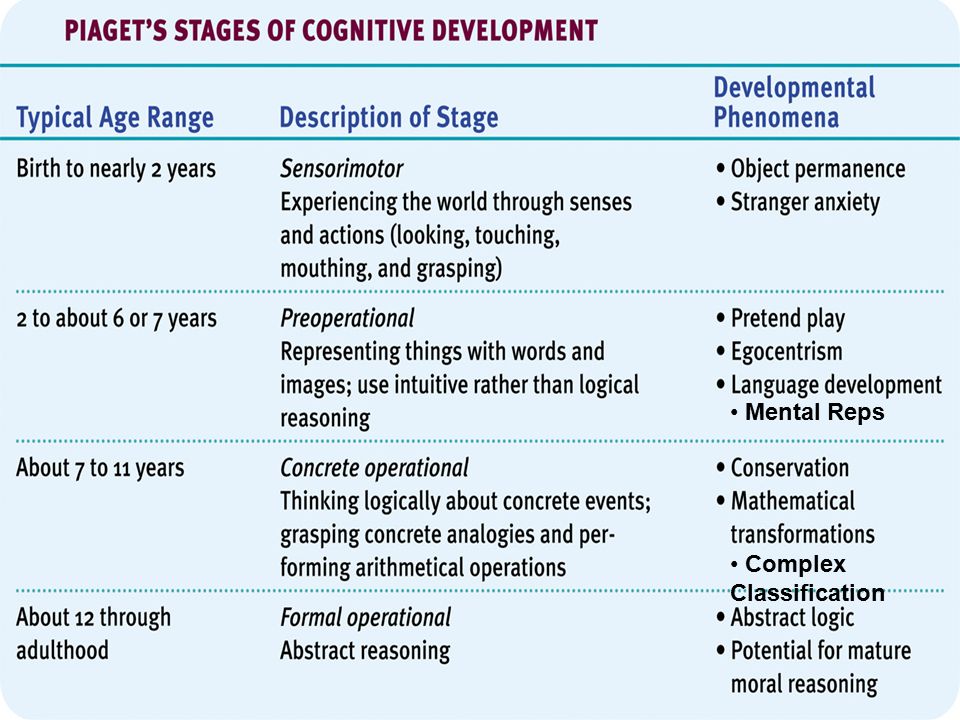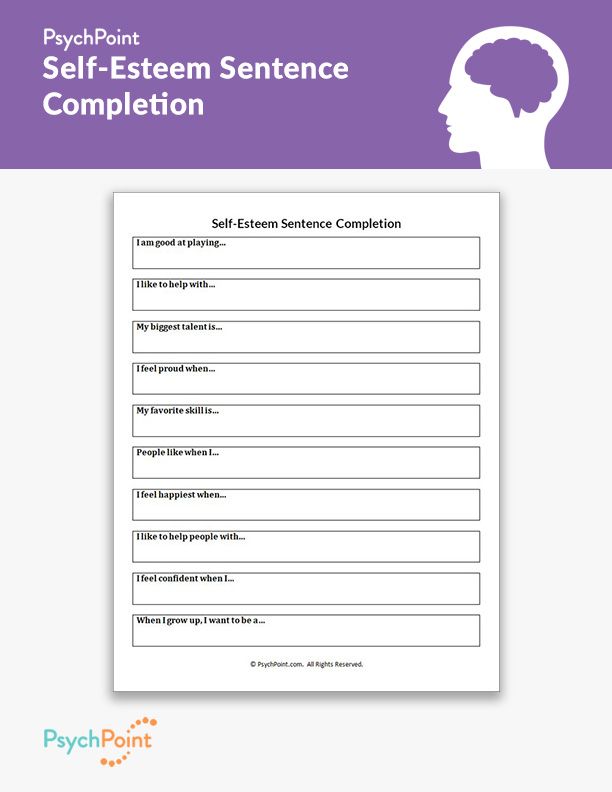Establishing boundaries in marriage
How to Set (and Respect) Boundaries With Your Spouse
Here's a simple truth: All healthy relationships have healthy boundaries.
You see, boundaries aren't restricting or limiting. They provide the freedom to express your needs and values while also honoring the needs and values of your partner. Setting boundaries is:
- The essential antidote to codependency.
- A prerequisite for emotional well-being.
- A learnable skill that determines the success and longevity of any relationship.
Setting healthy boundaries can transform your relationship and elevate your own self-respect.
What Do Boundaries Look Like in a Marriage?
Boundaries are unique for every individual. They cover a range of topics and can be small or big. In the simplest terms, a boundary in a marriage is the limit of what a person is willing to accept from their partner. Boundaries serve as an outward expression of a person's core values and beliefs and reflect what they need to feel safe, respected, and loved.
Married couples often establish boundaries in areas such as:
- In-laws and family (e.g., how often we visit the in-laws, how much personal details they should know about the marriage).
- Personal privacy (e.g., agreeing not to go through each other's phones, not being forced to share details about the past).
- Communication (e.g., zero-tolerance for shouting or name-calling).
- Autonomy (e.g., the freedom to make your own decisions, work toward goals, or maintain friendships outside the marriage).
- Physical space (e.g., zero tolerance for violence, agreements about sex including when, where, and how).
- Money (e.g., not hiding money or debt from each other).
- Home life (e.g., expectations on shared parenting, household chores, quality time spent together).
- Relationship rules (e.g., the expectation of loyalty and fidelity, trust and respect).
Of course, understanding what a boundary looks like is just one part of the puzzle.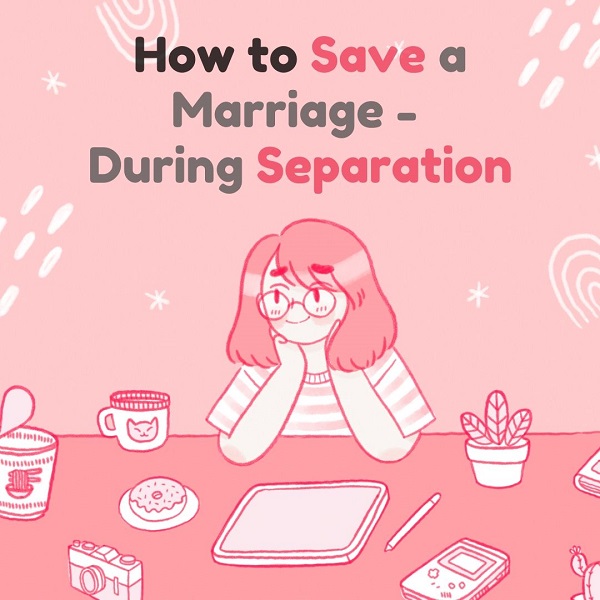 The next step is figuring out how to set a boundary effectively.
The next step is figuring out how to set a boundary effectively.
4 Ways to Set and Respect Boundaries With Your Spouse
1. Use Clear Communication. Spend time identifying what is important to you in your relationship and your life. What "hill are you willing to die on" and what are you willing to be more flexible about? Once you've identified your specific boundaries, use clear language when discussing them with your partner:
- "Please don't speed when I'm a passenger in our car."
- "Please respect my privacy."
- "I am not OK with raised voices during conflict."
- "Pressure to have sex makes me uncomfortable."
- "I need a half-hour to myself when I get home from work to decompress and better help with the kids."
Sit down with your partner to discuss your values, express your needs, and agree upon boundaries that will uphold these needs. Make sure these are boundaries you are both prepared to respect and honor.
2. Set Clear Consequences. Once you and your partner have discussed your boundaries—the "musts" and "must nots" your relationship needs to be successful—the next step is to be clear about what the consequences are if and when boundaries aren't respected.
For example, if you and your spouse agree that you will not raise your voices during conflict, a consequence of yelling during a fight could be pausing the argument and taking a 30-minute walk alone.
It is imperative that you follow through on the consequences of any boundary violation. Not following through shows your partner that you don't respect your own boundaries—and if you don't respect your boundaries, why should they?
3. Take Responsibility. Remember: Everything you do and say has a natural consequence, whether positive or negative. For example, if you're frequently critical of your spouse, they probably won't want to be intimate with you. But if you speak kindly and refrain from yelling during an argument, they're more likely to feel secure and desire physical intimacy and connection.
This same concept applies to honoring your partner's boundaries. Realize that what you say and do (or don't do) affects your partner. Understand that you may slip up along the way, especially if you and your partner are new to setting healthy boundaries. Take responsibility when you make a mistake, offer genuine apologies, and always circle back to clear, respectful communication.
4. Seek Professional Help. Setting boundaries is hard. Consulting with a licensed marriage and family therapist or another professional can be extremely beneficial, especially if you are creating "big" boundaries around issues like alcoholism, infidelity, or child-rearing.
Professional guidance helps you:
- Identify your boundaries as they relate to your values and needs.
- Use tools and language to communicate your boundaries.
- Establish appropriate consequences for boundary violations.
Also, know when to end a relationship if certain boundaries are routinely disrespected or simply not compatible (e. g., wanting kids versus not wanting kids).
g., wanting kids versus not wanting kids).
15 Must-Have Healthy Boundaries In Marriage
In This Article
For some, the words ‘boundaries in marriage’ are a common thing but for most of us, it’s not. If this is the first time that you have heard this term then it’s just right to get familiarized with the importance of setting healthy boundaries in marriage.
We have often heard about compromising and commitment in a relationship but setting healthy boundaries? Maybe this is the one piece of advice that we have all been missing?
What are the healthy boundaries in marriage?Boundary – a term that we understand and have encountered many times even in our daily lives.
Examples of healthy boundaries that we see in our daily lives are stoplights, medicine rules and dosages, work rules, and even the 10 commandments in the Bible. We need similar examples of healthy boundaries in marriages.
Boundaries in marriage are set because of the same reason why we have boundaries to follow in our daily lives.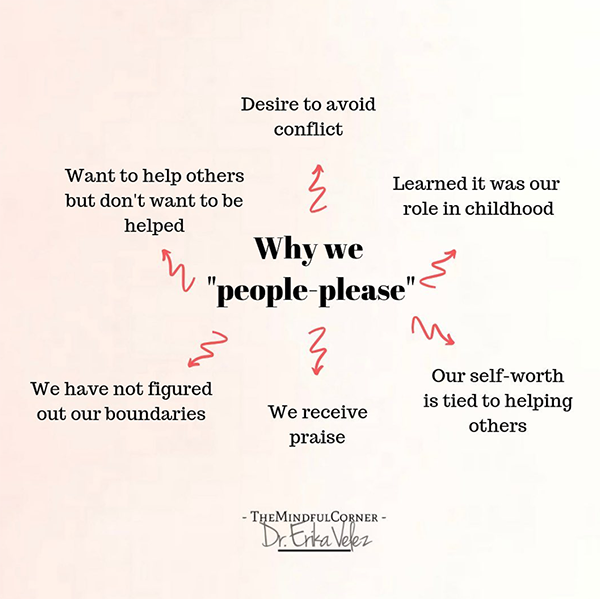
It acts as a warning or a limit that will protect the marriage from actions that will ruin it. If one doesn’t practice setting boundaries in a marriage, then it would probably take just a few months to see the effects of having no boundaries at all.
Why are boundaries in marriage good for your relationship?Boundaries may at first sound like a negative thing but they are not. In fact, setting healthy boundaries are good, because they teach us to understand different situations and how to stay safe in how we act and talk. It’s important to know what our boundaries are there so that we don’t hurt or compromise our relationship with other people, including our marriage.
Being able to establish healthy boundaries in marriage will allow both spouses to feel much more comfortable with each other and will eventually help each other develop self-esteem, thus making the marriage better and stronger. By knowing the importance of appropriate boundaries in marriage, each spouse would be able to think first before acting or talking. It allows a person to reflect on the things that they might say and what effects it will have in the relationship.
It allows a person to reflect on the things that they might say and what effects it will have in the relationship.
Healthy boundaries are important to help you keep your identity intact. You can set boundaries in a relationship through following ways:
- Introduce healthy boundaries at the start of the relationship. In this way, it will be easier for partners to follow some relationship rules rather than feeling hurt.
- Keep the conversation lines open. It’s always best to communicate to avoid any sorts of misunderstandings and distrust occurring in the relationship.
- Focus on ‘I statements’ rather than beating about the bush. For instance, if you wish to convey something, say, “I really feel _______.” you must not use statements that make your partner feel criticized or condemned like, “You always ____.”
You might want to check out this article for further information on healthy boundaries in relationship:
Setting Healthy Boundaries in a RelationshipHealthy boundaries in marriage
In order to establish healthy boundaries in relationships, both spouses should have a clear understanding of each other’s personalities. This is the basis of every boundary that a married couple would create. As months and years pass, this may change according to what we see in the marriage itself.
This is the basis of every boundary that a married couple would create. As months and years pass, this may change according to what we see in the marriage itself.
We have to remember that marriage is a continuous adjustment of two people and as we are able to practice healthy boundaries in marriage, we also reflect on ourselves and who we really are as a person, a spouse, and ultimately as a parent.
15 healthy marriage boundaries for couplesIn setting healthy boundaries in relationships, the first thing that we would want to know is how to start and where to start. Don’t worry because as you go along with these 5 essential boundaries in marriage, you tend to be good at judging as to what type of boundaries you ought to set next.
1. You are responsible for your own happinessYou have to understand that while marriage is a two-way process, it’s never the only source of happiness so stop having this mindset. Allow yourself to grow and know that you can be happy on your own and better with your spouse.
Related Reading: How Marriage and Happiness Can Be Enhanced With 5 Simple Activities2. You can have friends even if you are married
One boundary that is often misunderstood is having friends outside marriage. Some boundaries become negative when the feelings involved with it is also negative such as jealousy. You need to let this go and allow your spouse to still have friends outside the marriage.
3. You need to open up and have REAL communicationWe may all be busy but if you really want something, then you can definitely find some time for it. Never stop communicating with your spouse because this should be the base of your relationship.
4. You need to respect your spouseSome boundaries in relationships get out of hand and can sometimes strip you of rational thinking and can later be a trait where you can no longer respect your spouse as a person. Respect their privacy. Set boundaries that you know where being married stops. For example, even if you are married, you don’t have the right to snoop on your husband or wife’s personal belongings. It’s just wrong.
For example, even if you are married, you don’t have the right to snoop on your husband or wife’s personal belongings. It’s just wrong.
Related Reading: How to Re-establish Love and Respect in Marriage5. You need to be direct if you want something
Speak up and let your spouse know if you want something or if you disagree on things that you both need to decide. Without the ability to express what you feel, then being married is meaningless because a true marriage also means being able to be yourself with this person.
6. No physical abuseThere should be boundaries between the partners so that none of them steps forward to an extent to practice physical abuse in order to have a say in the relationship. Each partner needs to have enough self-esteem as to draw the line when it comes to violence.
Related Reading: 5 Facts About Physical Abuse in a Relationship7. Nicknames you both like
At times, partners should also build boundaries so that they know that the names they give to each other is respectable and sounds adoring rather than a bully. Partners can also become uncomfortable and embarrassed by their nicknames and their spouse should not press upon such names.
Partners can also become uncomfortable and embarrassed by their nicknames and their spouse should not press upon such names.
Spouses are not bound to discuss everything about each other’s family if they are not comfortable. Conversations about their respective families should be limited to the point both the spouses are comfortable sharing and listening to.
9. The kind of commitment you both wish to haveIt should be clear in every relationship or marriage what level of commitment they both want from each other. If one partner wants a monogamous relationship while the other seeks open marriage, there should be a boundary where they both come to the same page and keep the relationship working.
10. Scope of sharingFor sure, sharing is caring but there have to be boundaries when it comes to the extent of sharing. Both the partners should ensure that they are only sharing what they feel comfortable with and the other partner should not force them.
Partners should give each other me-time and not hamper each other’s personal space. Me-time is essential for couples to re-energize and keep the relationship healthy.
12. Handling fightsHow the fights should be handled must be pre-decided in every relationship. The partners should understand each other’s apology language and work around the relationship accordingly.
Check out this video about bickering in a relationship where Esther Perel discusses ways to communicate your frustrations in the relationship:
Related Reading: 8 Easy Ways to Resolve Conflict & Improve Marriage Communication13. Setting sexual limitations
There could be sexual advances that one partner might not be comfortable with. So, both the partners must know what is acceptable is sex and what is not. They should work on safe words as an important step.
They should work on safe words as an important step.
14. Financial preferences
Every person has their own money behavior. So, partners must discuss their financial habits and if they would like to keep their money combined or separated. Money is considered to be one of the top reasons for divorce.
So, it is essential to build good boundaries in marriage relating to finances beforehand.
15. Your hobbies and activitiesPartners might have different preferences when it comes to hobbies and activities. They should set a limit to what they would like to share in terms of hobbies and things they would want to do separately.
How to maintain healthy boundaries in your marriage life?If you think that you are ready to set boundaries in a relationship and want to know how to start, then just follow some of the most basic tips that can help.
- We all know that setting up boundaries is our right and it’s just right to let our spouse know what they are.
 Communicate because it’s the only way to fully understand each other.
Communicate because it’s the only way to fully understand each other. - If you agree on something, make sure that you do it. Sometimes, we can be so keen with words but our actions fail to fall through. Be able to compromise before you promise changes.
- Whatever happens, your actions will be your fault, not your spouse or any other people. As you can see, boundaries start with YOU so it’s just right that you need to be disciplined before you can expect your spouse to respect your boundaries.
- Remember that there are emotional and physical boundaries in the marriage too and this will include boundaries from any abuse and even fidelity. Along with the basics, a person needs to understand their feelings before setting boundaries for their marriage.
Setting healthy boundaries in relationships is indeed a skill to learn and yes – it requires lots of time. Just remember, healthy boundaries in marriage will never come easy but if you and your spouse trust each other, then your relationship will get better over time.
References
https://firstthings.org/why-spending-time-alone-is-good-for-your-marriage/https://psiloveyou.xyz/why-you-need-a-safe-word-for-outside-the-bedroom-too-3bddae015549https://www.ramseysolutions.com/company/newsroom/releases/money-ruining-marriages-in-america
I'm in the house: how to set boundaries correctly
Personal boundaries are a line that runs between individuals, the people around them and larger social systems. They are needed so that we can clearly feel: where I am, and where I am not; where are my own emotions, actions, beliefs and thoughts, and where are others. And if these emotions and thoughts are mine, then I am responsible for them and control them. Borders also protect our inner world from outside encroachment.
Finished reading here
They may look like a five-meter stone fence with barbed wire and machine gunners on the towers.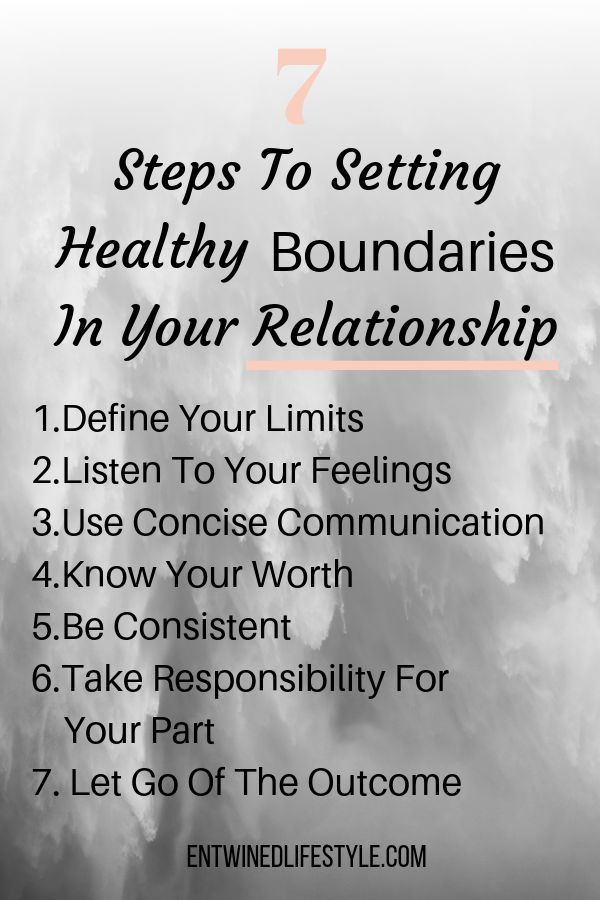 Or they may be absent altogether - all the doors will be wide open. Boundaries can change depending on the context and environment, become solid for some people and completely blurred for others.
Or they may be absent altogether - all the doors will be wide open. Boundaries can change depending on the context and environment, become solid for some people and completely blurred for others.
Personal boundaries can be opened for "import", when we gladly accept other people's help, resources, time, money, etc., or for "export" - our own resources. We usually import what we especially need, and we export either what we have in abundance, or what we hope to get a good price for.
Boundaries are needed to mark two important issues:
1. What do I consider my property (and therefore will I protect)?
2. What am I responsible for (and will try to control)?
Boundary checking
How does this manifest itself in specific behavior? There are people for whom property boundaries can be very arbitrary. Such a person does not consider anything his own, inviolable, he "does not become attached to things." He cannot close himself in his room because he considers it impolite. Such people cannot refuse help or money, even realizing that this money will not come back. Their borders are always open for imports, it is important for them that people see them as kind, generous and open. It's a way to build relationships. Sometimes they even think that having nothing of their own is safer.
Such a person does not consider anything his own, inviolable, he "does not become attached to things." He cannot close himself in his room because he considers it impolite. Such people cannot refuse help or money, even realizing that this money will not come back. Their borders are always open for imports, it is important for them that people see them as kind, generous and open. It's a way to build relationships. Sometimes they even think that having nothing of their own is safer.
The opposite type is people whose boundaries are too wide. They consider everything their property - wife, children, employees, office or apartment space, other people's things and time. They do not see other people's boundaries and do not consider it necessary to observe them. Wherever such a person is, there is always “too much” of him, he captures the space around him. And if he was not given something in a good way, he can take it away "in a bad way.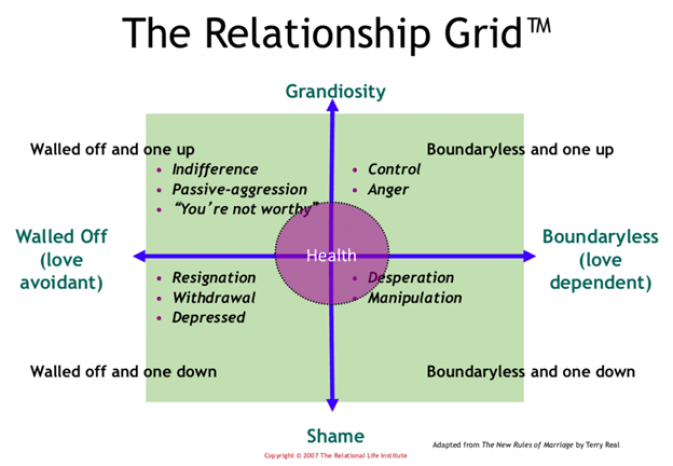 "
"
Two "extreme" types also exist in relation to responsibility. There are people who take on too much, trying to control what is beyond their control. Such a wife thinks that her husband yelled at her because she did not have time to set the table on time or did not clean up well enough. People agree with every charge brought against them. The logic is this: if I tried better (guessed other people's desires and did everything right), then this would magically change those around me, make them happy and loving. People with such a strategy of thinking lack recognition and praise, they are ready to do everything to get this simple currency.
The other extreme is characters who are not ready to take responsibility not only for others, but also for themselves. They do not see their contribution to the development of conflict situations, do not accept criticism and try to avoid any obligations.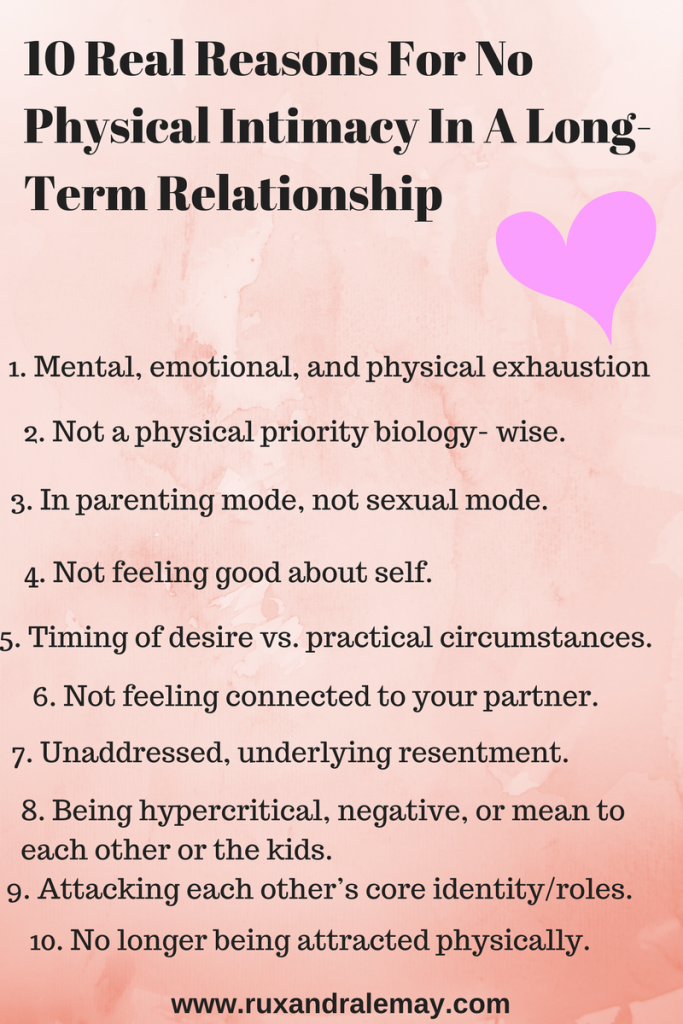 If you entrust them with a project, they will either require a partner or will come running every half hour with questions and clarifications so that the responsibility does not lie with them (or at least not with them alone). Men with a fear of responsibility are almost elusive for marital or paternal obligations. They consider them a violation of their boundaries, because the family will force them to change their usual way of life.
If you entrust them with a project, they will either require a partner or will come running every half hour with questions and clarifications so that the responsibility does not lie with them (or at least not with them alone). Men with a fear of responsibility are almost elusive for marital or paternal obligations. They consider them a violation of their boundaries, because the family will force them to change their usual way of life.
Border Guard Day
How to define your borders and protect them? Unfortunately, you cannot put up pegs and notify others that “this half a meter of land around me is my territory, do not enter without knocking.” Although, in fact, this is exactly what young ladies with long puffy skirts did in the old days.
In my trainings, I often do a simple exercise. I ask a person to designate a limit invisible to others, and I begin to slowly approach it - step by step. The task of the participant is to make it clear without words that I am already close to the point that I do not need to cross. The reaction is very different. Someone is very calm at first and only at the last moment begins to frown. Someone, on the contrary, from my first step “gets into a pose” and puts on “boxing gloves”. Very polite people let me close, with a bewildered smile on their face. And only then it turns out that I have long passed the intended border. There was also such an “intelligent” reaction: when a person understands that I am not going to stop and provoke him to more obvious actions, he himself takes a step back, leaving his integrity stable. But in order to stay at a safe distance from me, he has to give up his territory.
I ask a person to designate a limit invisible to others, and I begin to slowly approach it - step by step. The task of the participant is to make it clear without words that I am already close to the point that I do not need to cross. The reaction is very different. Someone is very calm at first and only at the last moment begins to frown. Someone, on the contrary, from my first step “gets into a pose” and puts on “boxing gloves”. Very polite people let me close, with a bewildered smile on their face. And only then it turns out that I have long passed the intended border. There was also such an “intelligent” reaction: when a person understands that I am not going to stop and provoke him to more obvious actions, he himself takes a step back, leaving his integrity stable. But in order to stay at a safe distance from me, he has to give up his territory.
I don't know how you would react in this exercise. Think about it.
You can defend your borders in different ways in different situations. The ability to say "no" (without the subsequent sprinkling of ashes on the head!) Is an important personality skill. It is necessary for those who easily succumb to pressure, aggression and other "honest ways of taking money."
The ability to say "no" (without the subsequent sprinkling of ashes on the head!) Is an important personality skill. It is necessary for those who easily succumb to pressure, aggression and other "honest ways of taking money."
The ability to create and protect one's own boundaries, of course, is formed even by parents. But over the course of life (and with different people), boundaries can change many times. Teenagers, for example, protect them militantly, they need this life period in order to separate from their parents and learn to build their own lives on their own, to respect themselves. And couples in love sometimes completely dissolve in each other, and only then they begin to notice that it has become crowded. If you do not revise the rules of interaction in time, do not outline the circle of your interests, then the couple comes to a crisis or even breaks up.
Like any other skill, the ability to see and respect one's own and others' boundaries may well be mastered at a later period of time.
How to defend your territory
How do you react to a yelling boss? Do you get nervous before public speaking? Are you able to refuse requests from loved ones if they are inconvenient for you? Do children have the right to disagree with you, to close in their room? How do you feel when your spouse (or best friend) said something “wrong”? Do you want to suggest, correct, give a cuff, shame, do you think that the actions of loved ones “dishonor your reputation”?
The skill of respecting other people's boundaries is, first of all, allowing other people to be different from you. A good aphorism caught my eye recently: “Selfishness is not when you do what you want. This is when you are sure that others should do what YOU want. When you want to "do good" to someone - that is, to help, give advice, stand up for someone, correct the situation - pause and look around. Does this violate someone's interests, does it plunge your counterpart into a position of helplessness and dependence? Have you been asked for this help? Does the person really need this kind of help?
Does this violate someone's interests, does it plunge your counterpart into a position of helplessness and dependence? Have you been asked for this help? Does the person really need this kind of help?
The main feature of "healthy" boundaries is their flexibility.
If you know how to move away from situations that are dangerous or unpleasant for you (if not physically, then at least emotionally!),
If you can, depending on the situation, open up for the "import" and "export" of resources, adequately use the words “yes” and “no”,
if you find it comfortable and safe to get close to the people you choose,
if you are able to consider both your own interests and the interests of others,
then your relationships with people become much more simple, honest and pleasant.
Set Healthy Boundaries: 10 Steps
119,458
Man among men Practices how to
What does it look like? For example, you are talking on Skype with a friend at midnight, because it is more convenient for her. Or give a ride to a colleague who, as soon as he sits down, habitually lights up in your car.
You and your husband are going on vacation to a place where it rains and where pike is great. You don't even realize that your boundaries are being crossed even when they are taunting you or joking about your size.
Some of us are reluctant to set clear boundaries because we believe that doing so can offend those around us.
Others set them up in such a way as to stake out part of someone else's territory.
But remember that there is that part of your "I" that needs to be protected from any encroachment, something that belongs only to you. Your emotional health, what you believe in, what you won't let outsiders touch.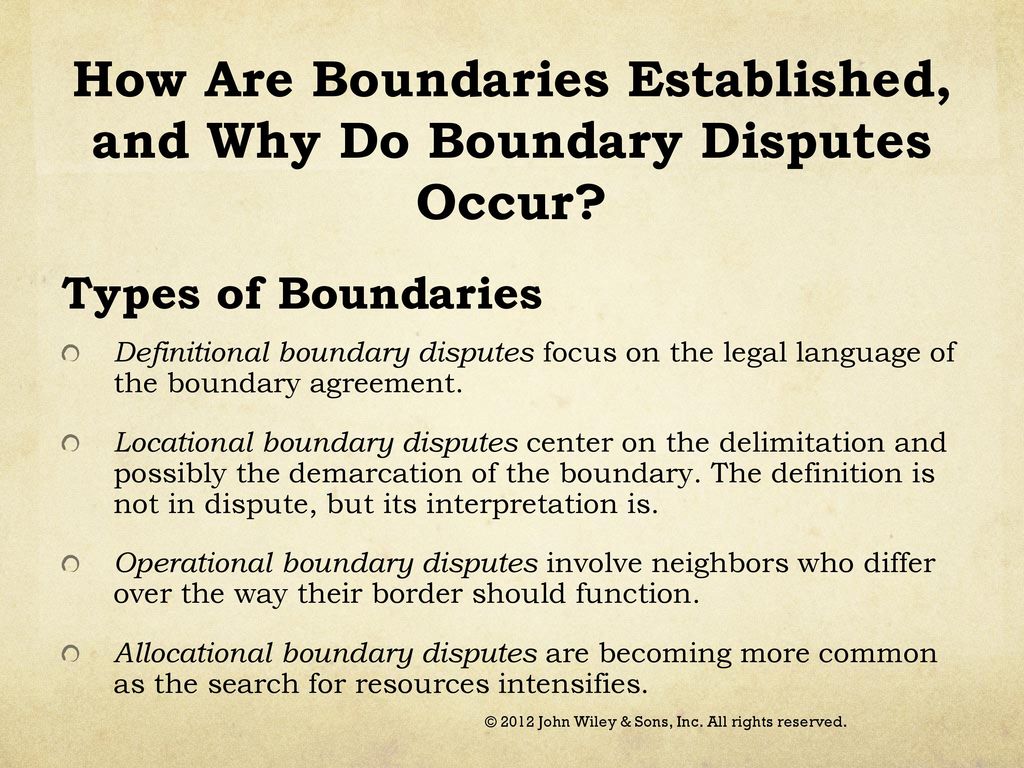
What are these boundaries and why are they necessary? Most simply they are defined by the words "my business" - "your business". By setting boundaries, we first of all decide for ourselves what behavior towards us will be reasonable and safe for us, will not destroy us as a person.
They are not designed to get someone to do something. We set them for ourselves, and in this way we show that we are responsible for our own destiny, for what is permissible and what is unacceptable to do in relation to us. But for this you need to know exactly who we are and what our true "I" is.
We understand where we end and another begins. We are responsible for ourselves and only ourselves. This is where every healthy person starts.
It is almost impossible to manipulate a person who is clearly aware of his personal boundaries and clearly marked them for others.
Determine if these boundaries are violated:
Physical boundaries
The very first, basic boundary for us is our skin.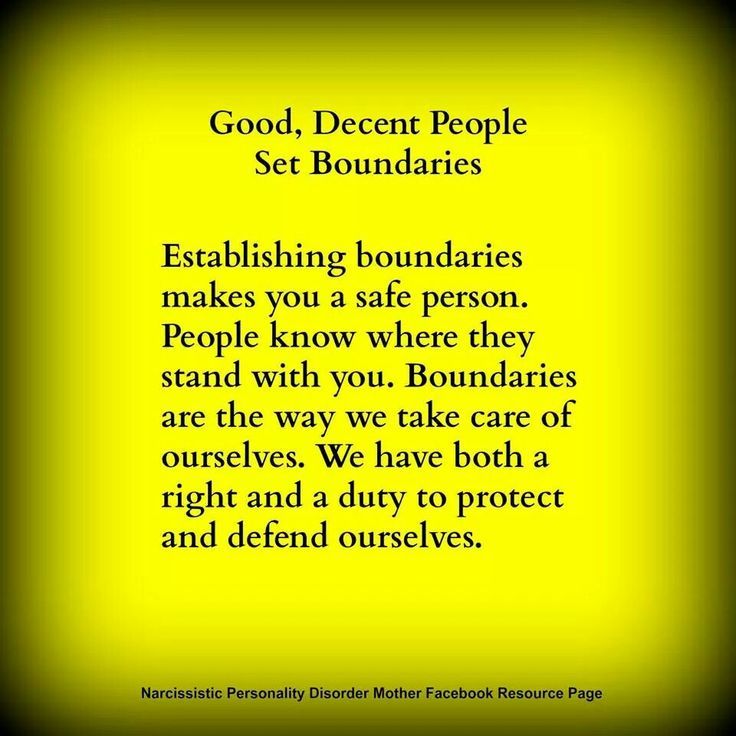 Important concepts that define your physical boundaries are physical space and personal space. Ask yourself the following questions to see if your boundaries are being violated by others.
Important concepts that define your physical boundaries are physical space and personal space. Ask yourself the following questions to see if your boundaries are being violated by others.
Who is allowed and who is not allowed to touch you and how? What do you consider only your personal space that needs to be protected?
Do you have a place in your house where you can be alone?
Sexual Limits
Find your personal level when sexual activities and touching are comfortable for you. Only you determine what is acceptable and what is not, where, when and with whom. Stick to these boundaries and don't be silent when they are violated.
Material boundaries
What actions do you consider permissible and what - impermissible in relation to your property?
What can you give as a gift? Borrow?
How much money do you allow yourself to borrow? Do you allow strangers to use your car, clothes, apartment? It is only you who determines this, and for different people these boundaries can be very different.
Who enters your house? Who wouldn't you like to see?
The same goes for your children's friends: which rooms in your house are not open to guests?
Do guests take off their shoes? Do they eat and smoke in your car? All these are things that should be determined only by you as the owner of the house.
Emotional boundaries
You are responsible for your feelings, but others are also responsible for their feelings. Don't let anyone take it out on you or make comments about your weight, appearance, or age. And don't do it yourself. Healthy emotional boundaries keep you from blaming or taking someone else's accusations personally. And also feel guilty for someone's decisions or problems and give unsolicited advice.
A border no one knows about is not a border
If you make excuses and argue or defend yourself, this is also an indicator of weak emotional boundaries. “I’m sad, I’m angry, I’m scared…” Are you able to respond to these feelings of yours immediately and calmly accept them? If you ignore them when they first appear, if you think you shouldn't have these feelings at all, your body will turn up the volume until you hear them.
Spiritual boundaries
What is important to you in life? What do you believe? As in all the previous ones, these boundaries must be felt and realized when they are crossed.
Intellectual boundaries
Your values, opinions, thoughts. They are only yours. And each individual decides what he wants to share with others, and what to leave unsaid. What do you believe? Can you listen with an open heart to those who express a different opinion, and at the same time without prejudice, without compromising your core beliefs?
There are two more things that belong only to you. These are your words and your time.
Remember: “no” is the most basic boundary and a complete, extended sentence.
Healthy boundaries are not:
- set for us by someone else;
- hurt us;
- are rigid and immovable;
- invade our personality.
10 laws of healthy boundaries
1. All actions have consequences. If someone in your life showed violence, cruelty, selfishness towards you, did you set boundaries? Or does it all happen over and over again with no consequences for them?
If someone in your life showed violence, cruelty, selfishness towards you, did you set boundaries? Or does it all happen over and over again with no consequences for them?
2. The law of responsibility. We answer to each other, but not to each other. This means not encouraging or provoking anyone's infantile behavior.
3. Power has limits. We have power over some things, but we do not have the power to change other people. We only have the power to change our own lives.
4. The law of respect. If we want others to respect our boundaries, we must respect theirs too.
5. Freedom of choice. We should be free to say "no" or say "yes" with a pure heart. You can’t love a person just because you feel sorry for him and he leaves you no other choice.
6. We need to evaluate the pain of setting our boundaries for others . Do our boundaries cause pain that will then lead to healing and growth? Or the pain that only hurts them?
7. Law of proactivity. We take active steps to solve problems based on our values and desires. Proactive people defend their freedom and express disagreement, but without raising an emotional storm.
Law of proactivity. We take active steps to solve problems based on our values and desires. Proactive people defend their freedom and express disagreement, but without raising an emotional storm.
8. The law of envy. We will never get what we want if we set our limits based on what others have. An envious person simply does not see his boundaries based on the choices that he has.
9. Law of activity . Don't wait for others to make the first move.
10. You need to communicate your boundaries. A border that no one knows about is not a border. We must make it very clear to the other what we want and what we do not want, what we will tolerate and what we will not. We must also make it clear that every violation of boundaries has consequences.
Text: Maria Malygina Photo source: Getty Images
New on the site
“My godfather pesters me and offers sex as a joke, but my husband never stands up for me”
“I am embarrassed to take payment for my work.